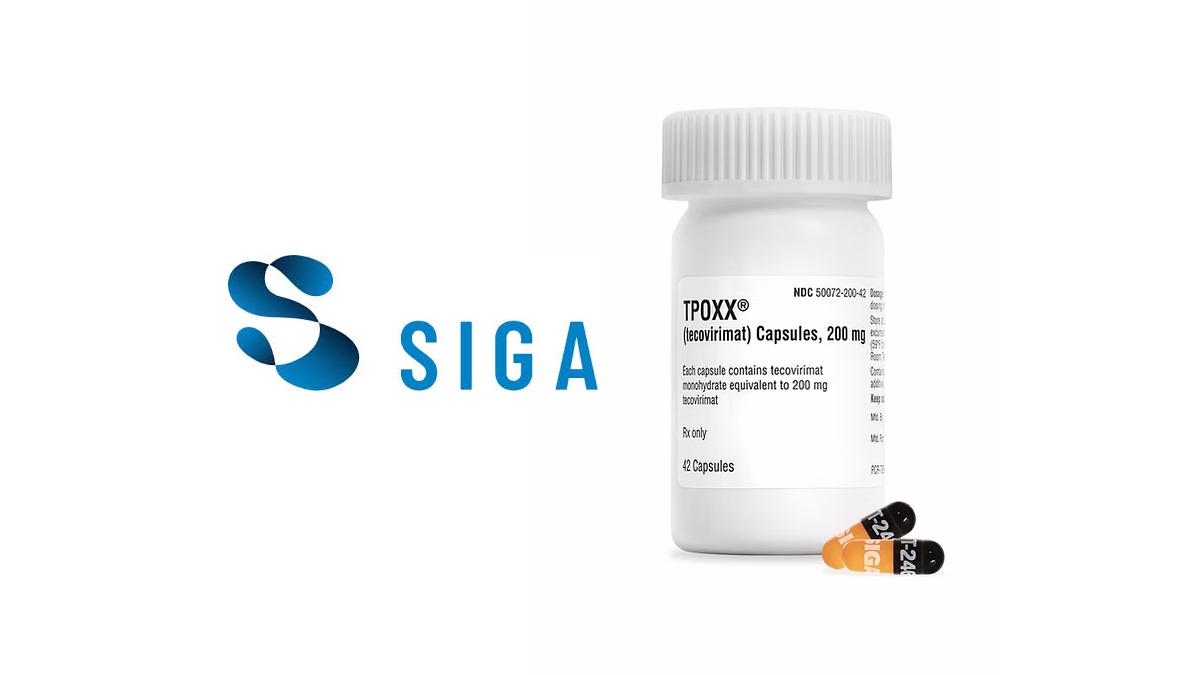NIH abandons trial of SIGA's mpox drug

Another clinical trial has found that SIGA Technologies' antiviral drug tecovirimat is ineffective as a treatment for mpox, prompting the investigators to stop patient recruitment.
The study by researchers at the US National Institutes of Health (NIH) is the second to show no benefit with tecovirimat in the treatment of mpox in the space of a few weeks.
It's a major blow to efforts to counteract an ongoing outbreak of mpox, as tecovirimat – approved as TPOXX for smallpox, another virus in the same family – is being used off-label to treat the disease in many countries around the world.
In the STOMP trial, tecovirimat did not reduce the time to lesion resolution or have an effect on pain compared to placebo in adults with mild to moderate clade 2 mpox and a low risk of developing severe disease in an interim analysis, according to the NIH. It was carried out in Argentina, Brazil, Japan, Mexico, Peru, Thailand, and the US.
The result follows the PALM 007 study carried out in the Democratic Republic of the Congo (DRC), at the epicentre of an outbreak deemed a public health emergency by the World Health Organization (WHO) – which found the drug was no better than placebo at mitigating mpox symptoms, as well as preventing serious outcomes including death, in patients with clade 1 mpox.
As a result of the preliminary STOMP data – which gave the chances of a positive outcome from the study at less than 1% – the NIH decided to stop patient enrolment into the trial, including an open-label study arm for participants with or at elevated risk of severe disease.
A clade 2 subtype of mpox caused an outbreak in 2022, and continues to circulate at low levels, but the current outbreak focused mainly on Central and East African countries is linked to a clade 1 strain, with a few cases also seen in international travellers who have visited the region.
"The initial STOMP findings provide valuable insight to inform clade 2 mpox medical countermeasures and underscore the critical importance of conducting well-designed randomised clinical trials during infectious disease outbreaks," commented Jeanne Marrazzo, director of the National Institute for Allergy and Infectious Diseases (NIAID).
"Before 2022, no treatment candidate had been studied in people with mpox, and this trial is a critical step in our systematic evaluation of existing antivirals like tecovirimat while pursuing novel antivirals and antibody-based mpox therapeutics," she added.
While the new study is a blow – given that tecovirimat remains the only recognised drug treatment for mpox – there are three vaccines available to help fight the outbreak from Bavarian Nordic, KM Biologics, and Emergent BioSolutions.
SIGA's chief executive, Diem Nguye,n said that antivirals are most effective when administered early in the course of an infection and tend to demonstrate the greatest benefit in patients with more severe disease.
For that reason "the STOMP results are not unexpected, as the study design was similar to the PALM 007 study, except it was in patients with mild to moderate clade 2 mpox compared to patients with clade 1 mpox."
He added: "It is important to note that approximately 75% of mpox patients in the randomised arms of the STOMP trial received tecovirimat more than five days after symptom onset, and higher-risk patients were included in an open-label arm."
It's not the end of the story just yet for tecovirimat for mpox, as three other trials are still ongoing – UNITY (Switzerland, Brazil, Argentina), Platinum-CAN (Canada), and EPOXI (EU) – although, Nguyen noted that these have similar designs and are likely to generate similar results.











